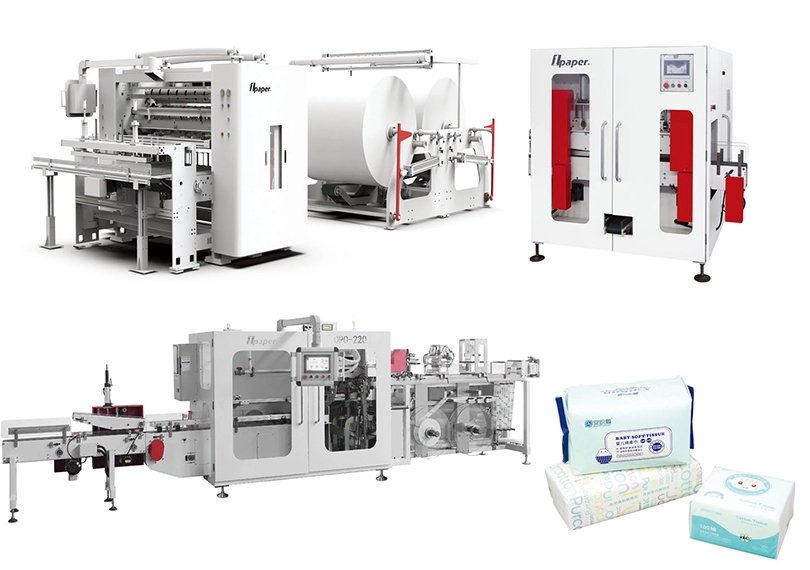
Onepaper’s Cotton Towel Production Line stands out for its exceptional operational efficiency, reduced production costs, and the ability to produce visually appealing products that boost consumer confidence. Its modular design, featuring easily interchangeable components, significantly cuts down inventory needs. Onepaper’s specialized maintenance services streamline operations and improve communication efficiency. The inclusion of collaborative workstations and advanced remote IoT technology enhances productivity and allows for real-time monitoring of production via mobile apps, tailored to different user profiles. Onepaper’s commitment to customized solutions means each production line is designed to fit the client’s specific operational requirements, desired output, and product specifications, ensuring a smooth production flow. This approach aligns with business goals and market demands, setting a new benchmark in cotton towel manufacturing for efficiency and adaptability.
In the realm of cotton towel production, waste reduction and recycling initiatives are becoming increasingly crucial for both environmental sustainability and operational efficiency. Manufacturers are adopting innovative strategies to minimize waste and repurpose by-products, thereby contributing to a greener planet and reducing production costs.
One significant approach to waste reduction is the optimization of cutting processes. Advanced cutting technologies, guided by precise software algorithms, ensure that fabric utilization is maximized, drastically reducing offcuts. This not only conserves raw materials but also decreases the amount of waste generated.
Recycling initiatives within cotton towel production lines are equally impactful. Cotton scraps and defective products, instead of being discarded, are collected and repurposed. These can be recycled back into the production process as raw material or used to create other products such as industrial rags, padding, or insulation materials, thus embodying the principle of circular economy.
Water recycling is another vital aspect for both cotton towel production and the toilet paper production line, especially given the significant water usage in cotton processing and dyeing. State-of-the-art water treatment facilities allow manufacturers to reuse water multiple times, significantly reducing water consumption and minimizing the environmental footprint of production processes.
Energy recovery systems are also being implemented, capturing and reusing heat generated during production. This not only reduces energy consumption but also lowers greenhouse gas emissions, contributing to the fight against climate change.
By integrating these waste reduction and recycling initiatives, cotton towel manufacturers are not only enhancing their sustainability credentials but are also achieving greater cost-efficiency. These practices demonstrate a commitment to environmental stewardship and social responsibility, aligning with the growing consumer demand for sustainable products.



